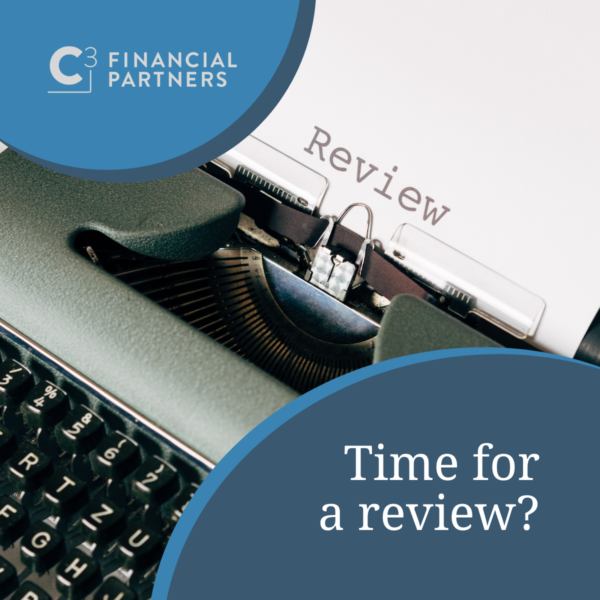In the first quarter of 1972, the median price of a home sold in the U.S. was $27,000. Fifty years later, the median price was $428,700 according to the St. Louis Federal Reserve. Of course, the median wages of Americans have gone up during this period to keep up with inflation; however, the increase in median wages is much lower than the increase in home prices – going from $11,120 to $61,937. This decrease in purchasing power, or how far your dollar will stretch today versus tomorrow, is how inflation is measured. In June 2022, inflation had climbed to an alarming 8.58% in response to a “hot economy.”
Inflation is personal and, depending upon each person’s stage in life, can directly impact income, taxes, debt and the size of an estate. This can make estate and legacy planning tricky.
We assist our clients and their legal and financial advisors in adjusting their planning to mitigate the impact of inflation. Areas of focus include:
- Estate Valuation
- Gifting
- Asset Disposition
- Life Insurance Performance and Positioning Review
Estate Valuation
Unpredictable price increases can be problematic when it comes to the size of an estate and the resulting inheritance taxes. For instance, let’s say that a married couple has business and real estate interests totaling $10 million but inflation increases the value to $14 million. This value, along with the couple’s other assets, is used to assess inheritance taxes at the federal and state level so it is important to understand the tax thresholds as inflation may move a taxable estate to a higher bracket.
An unfortunate scenario would be dying during a period when assets are held at unusually high values such that heirs are forced to pay taxes. Even worse, if those same asset values fall soon after, the inheritance for children and grandchildren could hold far less value than planned.
By keeping an eye on tax thresholds, taking action as needed and continuing to assess an estate plan as inflation changes, inflation can be hedged against. In 2022, the federal estate and lifetime gift tax exemption is $12.06 million per person but this is currently set to fall after 2025 to $5 million. This $5 million will be adjusted for inflation, meaning it could be significantly higher. Plus, the President and Congress could change both tax rates and the exemption amount at any time.
In collaboration with a client’s other advisors, we can assess an estate and discuss ways to protect against inflation.
Gifting
 As an estate’s value increases and purchasing power declines due to inflation, a planned approach to gifting may reduce, or freeze, an estate’s value, reducing inheritance taxes and preserving the value of assets earmarked for the next generation. In addition to gifting permitted by the federal exemption, couples can combine their annual exclusions, meaning that they can give $32,000 of property tax-free, per year, per recipient. These “use it or lose it” gifts can be made to irrevocable trusts (if properly structured) as well as individuals, depending upon the objectives of the donor(s).
As an estate’s value increases and purchasing power declines due to inflation, a planned approach to gifting may reduce, or freeze, an estate’s value, reducing inheritance taxes and preserving the value of assets earmarked for the next generation. In addition to gifting permitted by the federal exemption, couples can combine their annual exclusions, meaning that they can give $32,000 of property tax-free, per year, per recipient. These “use it or lose it” gifts can be made to irrevocable trusts (if properly structured) as well as individuals, depending upon the objectives of the donor(s).
In addition to trust and family gifting, giving to community organizations can have tremendous benefits, including tax advantages. We work with clients and their advisors to address the best course of action for gifting during an inflationary period.
Asset Disposition
Selling an asset to an irrevocable trust should be a consideration when inflation is climbing. Irrevocable trusts are often set up as grantor trusts, which simply means that they are not recognized for income tax purposes (all of the income tax attributes of the trust, such as income, loss, gains, etc. is passed on to the grantor of the trust). The trust can therefore purchase a grantor’s assets for immediate payment or on an installment basis, with no recognition of gain and no gift tax consequences.
By accepting a promissory note for assets sold to a trust, the current AFR (applicable federal rate) interest rate can be locked in before rates go up. Later, if the AFR drops, the note can be refinanced at the lower rate. This means not only is the entire value of the assets sold to the trust no longer a part of a grantor’s taxable estate, but those assets sold at a discount can preserve more of any existing federal estate tax exemption. As inflationary pressures rise, our team works with clients and their advisors to determine if an asset sale makes sense.
Life Insurance Performance and Positioning Review

While inflation increases the cost of goods, the face amount of a life insurance policy generally does not increase. Therefore, as the average inflation rate from 1941-2021 was 3.73%, a person would need a $878,000 death benefit in 2021 to replace the $50,000 death benefit of 1941. Even though it is prudent to annually review a life insurance policy, the importance of a review is magnified when estate values may be rising rapidly due to inflation. Is the amount of current life insurance sufficient to meet current tax liabilities? If not, more coverage may be needed, though, there may be ways to adjust a current policy or exchange it for a more competitive version.
Even if the amount of life insurance is enough to pay for inheritance taxes and to provide for heirs, it is imperative the policy is owned correctly. By personally owning a cash value life insurance policy, the death benefit will escape income taxes, but the face amount will likely be included in the owner’s estate. It may be that owning a life insurance policy outside of an estate in an irrevocable trust may be the best course of action. We work with clients and their advisors in positioning existing or new life insurance so that it best meets the impact of inflation on an estate.
Address Inflation Now
Ten years ago, interest rates were comparable to today’s rates and people kept planning. When rates dropped, they refinanced any loans and diversified their investments. Get ahead of inflation but taking steps to mitigate its affect. At C3 Financial Partners, we help our clients gain clarity in their goals and objectives, confidence that they are making the right decisions, and coordinating with our clients’ other advisors.
 ™
™


